A stage with good influences
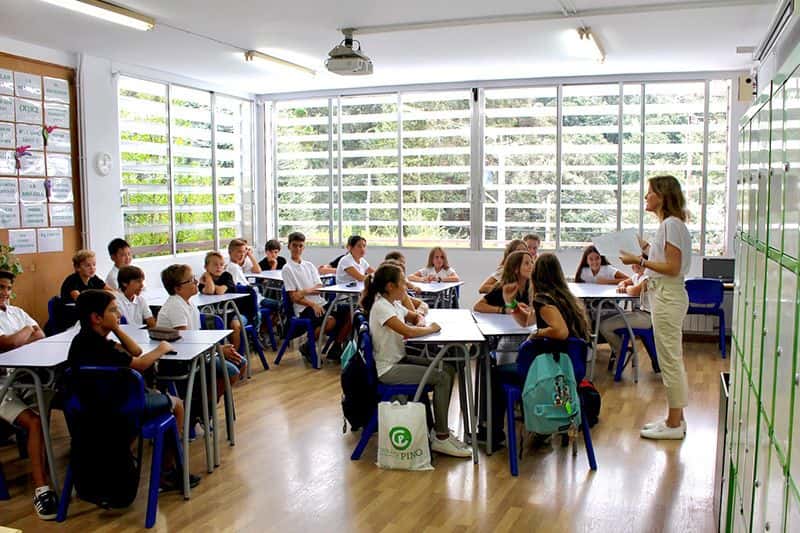
In our school, the Secondary stage has been influenced by the latest studies on Neuroscience in education and, more specifically, the Harvard Project Zero. A team from the school even travelled to the United States for first-hand knowledge of the most suitable proposals and methods for our students in relation to this subject. The Culture of Thinking is the newest of all, and has meant a quantum leap in our educational project and has had a more enthusiastic response from students. Through this method, they learn 21st century skills that will be of great use during higher studies and in their professional and private lives.
Secondary stage classes are designed so that students work in the classroom with the support of their teachers, who distribute their time between explaining the lesson and ensuring students take on board what has been learnt that day, through specific tasks, exercises or troubleshooting. Equally decisive is the collaborative and cooperative work of the students, who help each other in their learning process. This enables us to apply cognitive mechanisms that are highly valued by Neuroscience and that highlight the benefits of peer-assisted learning, the companion effect, and mirror neurons. What is more, teamwork helps them develop strategies to solve problems or unforeseen situations, makes them more tolerant and flexible, and prepares them to manage any teamwork correctly. This, in addition to the regular brain breaks we promote and the dynamic layout of the classroom, gives satisfactory results, especially during these teenage years.
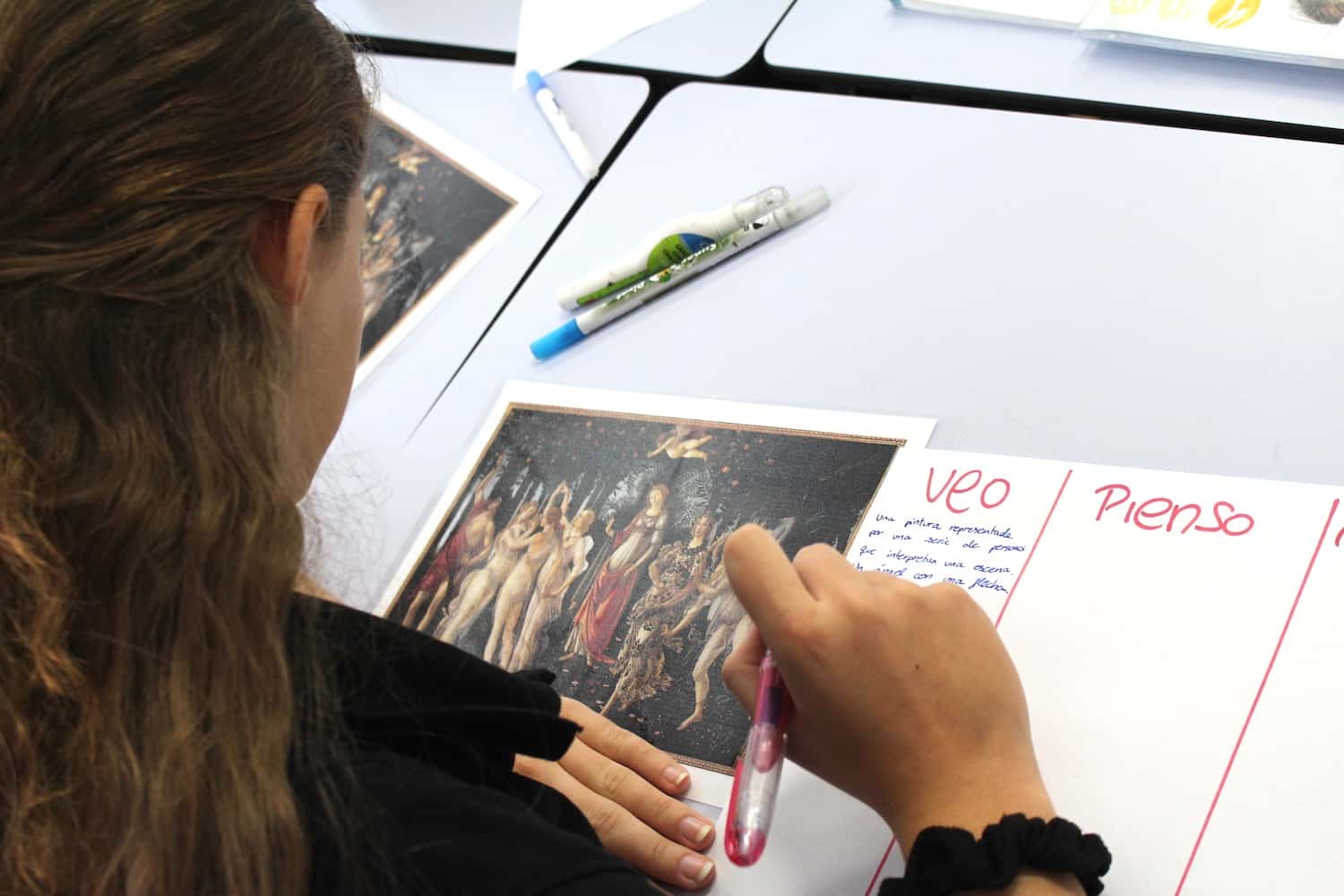
Student involvement and commitment
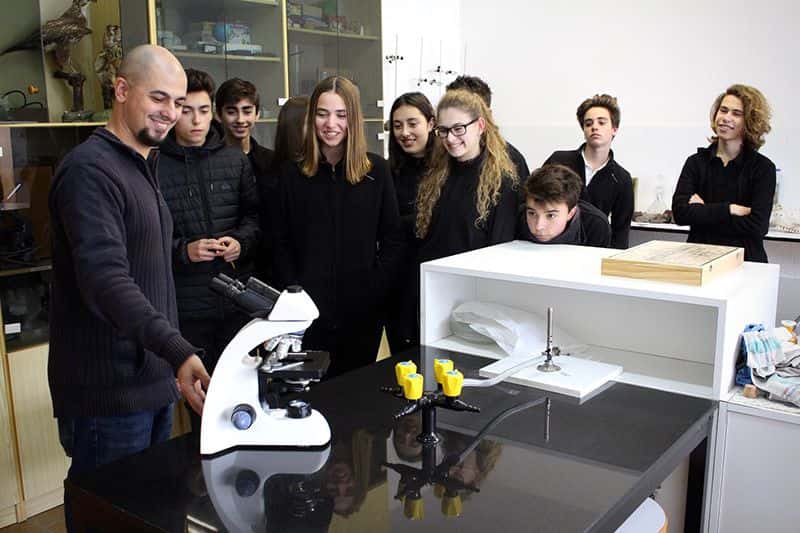
Each year has an assigned tutor, with whom the families can interview whenever they consider it appropriate. However, we also offer the possibility of shared tutoring with any teacher and with the presence of the student.
Experience shows us that these tutorials have an extremely positive return, as all three parties involved form a team and three-way complicity is created from which the student reaps most benefits. Moreover, to respond to any concerns students may have at these ages, our Department of Psycho-pedagogical Guidance is often a good resource for helping them channel their concerns and gain confidence. This is a good stage in which to ensure the student is fully involved in the school project and acquires a positive, committed attitude.
We also attach importance to learning through art, where students can channel their artistic creativity and expression. This in turn promotes what is known as “the forgotten hemisphere”. During the secondary education stage, students make extensive use of the chemistry lab, where they learn the scientific method to be able to research, form hypotheses, experiment, analyse results, obtain data, draw conclusions, and give oral expositions.
Along with writing, public speaking is another skill we work on with them in depth so that they can develop the habit, the experience and the confidence to speak confidently in front of an audience, with a coherent, flowing discourse, good staging, and correct voice projection.
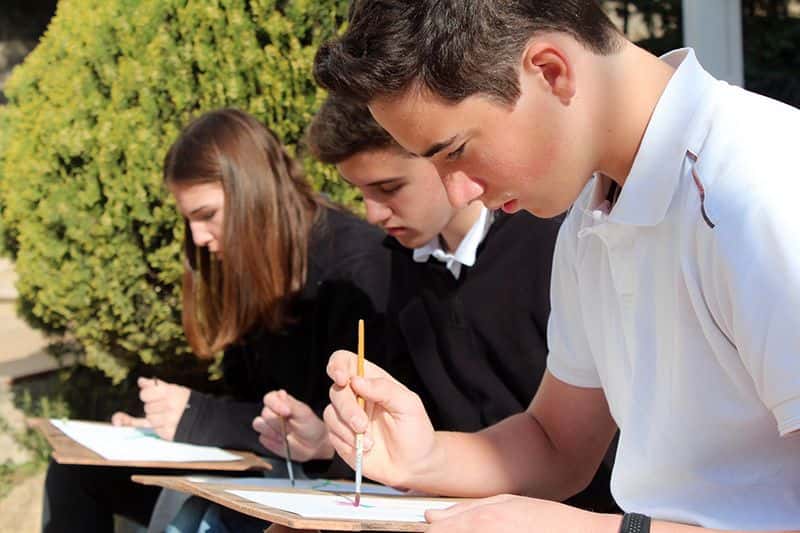
Subjects in English and official Cambridge exams
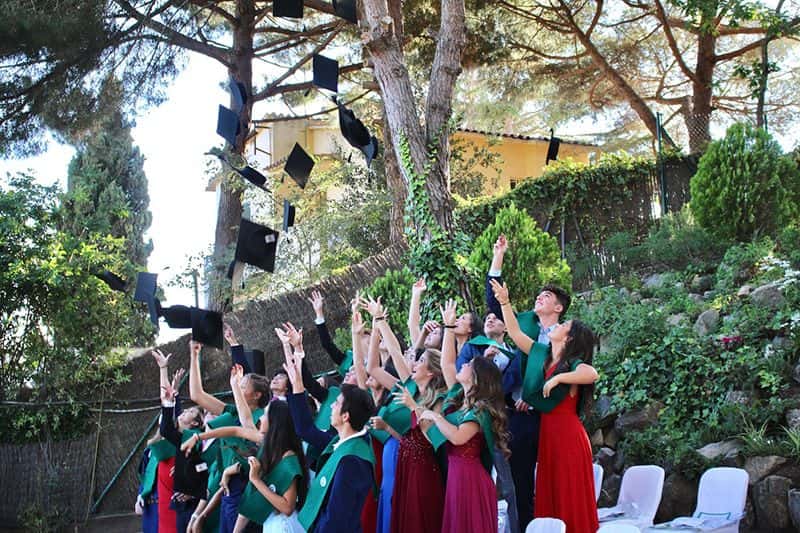
4th year secondary school students complete their Research Work in English and also expound it before their families and classmates, which is a challenge that ultimately offers them a great lesson and significant returns beyond the assessment itself. They can do this because the level of English at our school begins with immersion at nursery school stage and consistently increases with the curriculum and possibilities of the students. This means that they reach secondary school with a consolidated command of the language.
We also offer them the chance to take the official First Certificate in English (FCE) exams and the Certificate in Advanced English (CAE) at the school itself, as we are a Cambridge-approved centre. If required, they can prepare the oral, written and comprehension parts of these exams in after-school sessions given by teachers from the school.
As of the 2nd year of secondary school, students can also start to study gradually and alongside their other studies for the American dual diploma, with the supervision and support of our school’s English language team.